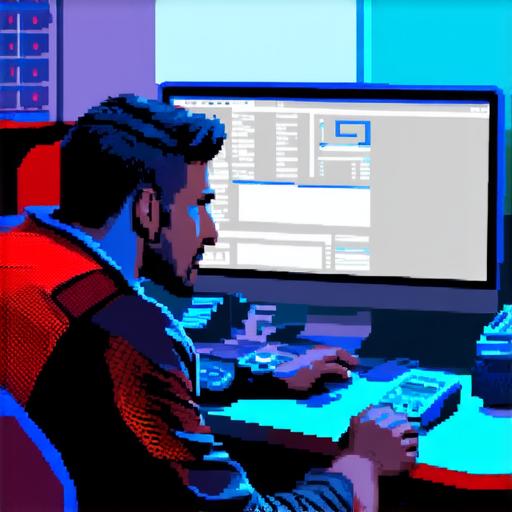How Many Hours Do Video Game Designers Work?
It’s a common misconception that video game designers work only during standard business hours. In reality, their work hours can vary greatly depending on the stage of the project and the specific requirements of their job.
Factors Affecting Video Game Designers’ Work Hours
There are several factors that can affect how many hours video game designers work. These include:
1. Project Timeline
The timeline for a project can have a significant impact on the number of hours worked by game developers. If a project has a tight deadline, designers may be required to work long hours to meet it.
2. Complexity of the Game
The complexity of the game being developed can also affect the number of hours worked by designers. Games with more intricate mechanics and systems may require more time and effort to develop.
3. Company Policies
Each company has its own policies regarding work hours, vacation time, and other employee benefits. These policies can impact how much time designers are required to work.
4. Personal Preferences
Some game developers prefer to work longer hours to complete a project, while others may prefer to work shorter hours and have more flexibility in their schedules.
5. Industry Trends
The video game industry is constantly evolving, and new technologies and trends can impact the number of hours worked by designers. For example, the rise of remote work has made it possible for some designers to work from anywhere in the world, which can impact their work hours.
Balancing Work and Personal Life
For many video game designers, finding a balance between work and personal life can be challenging. The demands of the job can make it difficult to maintain a regular schedule, and this can lead to burnout and stress.

To help find balance, some designers have implemented strategies such as setting specific hours for work and sticking to them. Others have learned to prioritize their tasks and focus on completing the most important work first, while delegating less important tasks to other team members.
It’s also important for game developers to take care of their physical and mental health. This can include getting regular exercise, eating healthy, and taking breaks throughout the day to recharge. For some designers, this may involve traveling to new locations or engaging in hobbies outside of work.
Case Studies: Real-Life Examples of Game Development Work Hours
To gain a better understanding of how long video game designers work, let’s look at some real-life examples:
1. John Carmack
Founder and CEO of id Software, John Carmack is known for his dedication to his work. During the development of Doom 3, he worked 200 hours per week and slept only a few hours each night.
2. Shigeru Miyamoto
Creator of Super Mario Bros., Shigeru Miyamoto is known for his hands-on approach to game development. He often works late into the night to make sure that every detail of the game is just right.
3. Nolan Bushnell
Co-founder of Atari and the creator of Space Invaders, Nolan Bushnell has worked long hours throughout his career. During the development of Space Invaders, he worked 80 hours per week and slept only a few hours each night.
4. Markus Persson (Minecraft)
Markus Persson, also known as Jeb, is the creator of Minecraft. He has been known to work up to 160 hours per week during crunch periods to ensure that updates are released on time.
These examples demonstrate the dedication and commitment required by video game designers to create high-quality games. However, they also highlight the potential risks associated with working long hours and the importance of finding a balance between work and personal life.
Comparisons and Figurative Language
To help illustrate the hours that video game designers work, let’s compare it to other jobs:
1. A 9-to-5 office job may require up to 40 hours per week, but this can vary depending on the role and the company.
2. A construction worker may work up to 48 hours per week, including overtime hours.
3. A musician or artist may work long hours, but their workload can be unpredictable. They may work for extended periods of time to complete a project, but then have long periods of downtime.
By comparing the work hours of video game designers to other professions, we can see that their workload is often more demanding and requires a greater level of commitment. However, it’s important to note that each designer’s experience is unique, and there are many factors that can impact their work hours.
Conclusion
In conclusion, the number of hours that video game designers work can vary greatly depending on the stage of development and the specific requirements of their job. While some may work up to 80-120 hours per week during crunch periods, others may have more flexibility in their schedules. To find balance between work and personal life, it’s important for game developers to prioritize their tasks, take care of their health, and implement strategies such as setting specific hours for work.
FAQs
1. How many hours per week do most video game designers work?
The number of hours that video game designers work can vary greatly depending on the stage of development and the specific requirements of their job. Some may work up to 80-120 hours per week during crunch periods, while others may have more flexibility in their schedules.
2. Is it common for video game designers to work long hours?
Yes, it is common for video game designers to work long hours during the production phase of a project. In some cases, they may work up to 80-120 hours per week to meet deadlines and ensure that the game is delivered on time.
3. Do video game designers have vacation time?
Yes, video game designers typically have vacation time as part of their employee benefits package. However, the amount of vacation time can vary depending on the company and the individual designer’s needs.
4. How do video game designers maintain balance between work and personal life?
To maintain balance between work and personal life, video game designers may set specific hours for work and stick to them, prioritize their tasks, take care of their health by getting regular exercise and eating healthy, and take breaks throughout the day to recharge. They may also engage in hobbies outside of work or travel to new locations to maintain a sense of variety and excitement.




